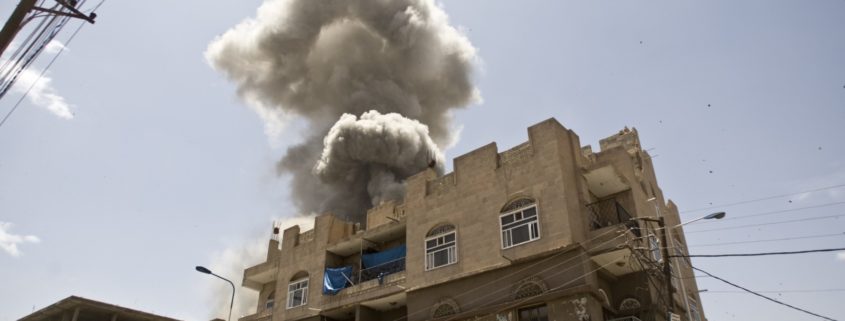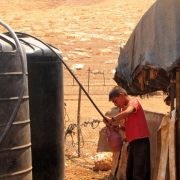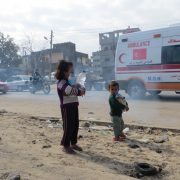HotSpots H2O, May 7: Yemen Risks Another Cholera Outbreak During Rainy Season, Ramadan
The Rundown
As the rainy season arrives in Yemen, health experts warn that another cholera flare-up could be imminent. Since 2016, more than 1 million cholera cases have been reported in the country, resulting in over 2,000 deaths. In the past, cases of the food and waterborne disease have spiked during the rainy season, when water is more easily contaminated.
An analysis of last year’s outbreak also revealed a rise in cases after Ramadan, a month-long period of intermittent fasting observed by Muslims worldwide. During Ramadan, Yemenis tend to share large evening meals and eat street food more frequently. Researchers believe that small behavioral changes during Ramadan, along with the ongoing rainy season and the country’s chronic breakdown in public services, create a perfect storm for the emergence of cholera.
“We expect to see a surge of cases during the rainy season. If something is going to happen it will happen now so everyone should be aware and respond quickly. The risk is high.” –Anton Camacho, lead author of a recent study on Yemen’s cholera epidemic, in reference to the risks of the upcoming rainy season.
By The Numbers
22 million Number of Yemenis in need of aid, out of a population of roughly 28 million, making the country the worst humanitarian crisis in the world.
14.5 million Number of people in Yemen who lack access to clean water and adequate sanitation services, putting them at high risk for contracting cholera.
3 million Number of Yemenis who have been displaced since conflict broke out in 2014.
100-fold Amount that Yemen’s daily number of cholera cases increased during the first four weeks of the 2017 rainy season.
50 percent Proportion of Yemen’s health facilities that are damaged or destroyed, making it difficult to deliver quick and proper cholera treatment.
On The Radar
The rainy season in Yemen typically lasts from April to the end of August, while Ramadan runs from mid-May to mid-June this year. So far, no major cholera outbreaks have been reported, although a handful of people in Al Hudaydah fell ill last month. Humanitarian agencies responded quickly, deactivating the contaminated water source and chlorinating nearby sources.
If fighting continues, though, even swift humanitarian aid may not be enough to stave off a major outbreak. Last month, an airstrike completely destroyed a water system in the Sehar district, cutting off the drinking supply of 7,500 Yemenis. The country is also still struggling to receive commercial imports, including the fuel needed to operate much of its water infrastructure. Overall, the odds of preventing another cholera outbreak are bleak.
Resources and Further Reading
In context reporting from Circle of Blue:
Clean Water Runs Out and Yemen Hovers on Edge of Another Epidemic
HotSpots H2O, February 26: Spotlight on Yemen’s Ongoing Import Blockade
Eleven facts about the Yemen crisis (UNOCHA)
‘I don’t think there’s a safe place in Yemen anymore’ (PBS Newshour)
Military action on and around water infrastructure jeopardizes efforts to prevent another outbreak of cholera in Yemen (UNICEF)
Yemen – Complex Emergency Fact Sheet #7, Fiscal Year (FY) 2018 (Relief Web)
Yemen risks new cholera outbreak as rainy season begins (Reuters)
Yemen’s unseen economic war is killing children by stealth (The Guardian)
Kayla Ritter is a recent graduate of Michigan State University, where she studied International Relations and Teaching English to Speakers of Other Languages. She is currently based in Manton, Michigan. Kayla enjoys running, writing, and traveling. Contact Kayla Ritter











Leave a Reply
Want to join the discussion?Feel free to contribute!